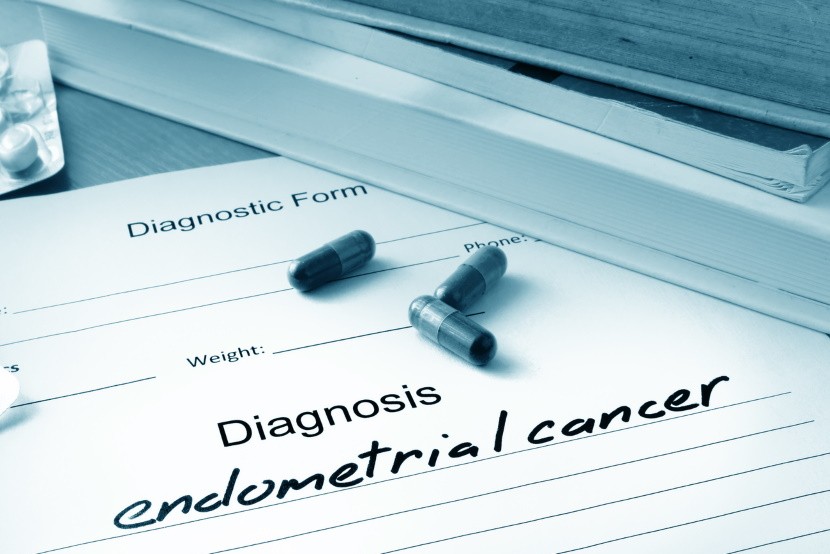More women are being diagnosed with endometrial cancer than ever before. The National Cancer Institute reports that Europe and North America have the highest incidence of endometrial cancer globally. "Endometrial cancer is the fourth most common cancer in women in the United States and the incidence has been increasing," says Leah Mechanic (Ph.D, M.P.H), of the Division of Cancer Control and Population Sciences in the National Cancer Institute. Excess estrogen, which can be produced inside of us due to foods and beverages, may contribute to not only uterine cancer but also to preventable hysterectomies from heavy vaginal bleeding.
Endometrial cancer, the most common form of uterine cancer, arises when cancerous cells and tumors develop within the lining (endometrium) of the uterus. Eating animal protein may promote this cancer initiation. Drinking caffeine may cause it to spread to other parts of the body. Body fat cells act like a factory for making too much of our own bioidentical estrogen.The risk of endometrial cancer increases with increasing weight gain. Up to 40% of all cases of endometrial cancer is linked to obesity. The heaviest women have the highest tendency of developing endometrial cancer. Body fat cells synthesized the hormone estrogen (which is a growth factor); excess quantities of this hormone can drive the formation, growth, and spread of cancerous cells and tumors within and beyond the endometrium. High amounts of estrogen are believed to be responsible for about 80% of endometrial cancer incidence.
Therefore, reduction in body weight and in the concentrations of blood levels of estrogen can help to slash down the risk of getting endometrial cancer. The findings of a study that examined the role of weight loss in the prevention of endometrial cancer reveal women who lost 5% or more of their body weight had a 29% reduction in the risk of developing endometrial cancer. Foods rich in dietary fiber are known to be beneficial in weight loss and also in the prevention of weight gain. In addition, data from numerous studies have shown the importance of high-fiber diets in the prevention of endometrial cancer. Fiber soaks up excess estrogen (like a sponge), carrying it out of the body in the solid wastes from the intestines.
A 2010 study that evaluated the correlation between dietary fiber intake and endometrial cancer risk revealed that cancer of the endometrium is less likely to occur in women adhering to a high-fiber diet. Similarly, researchers from Cancer Institute of New Jersey, USA, found out in their study titled "Association Between Dietary Fiber and Endometrial Cancer: a Dose-Response Meta-Analysis" that consuming larger amounts of fiber-rich foods may offer women significant protection against endometrial cancer. Despite the many factors that contribute to endometrial cancer, increased intake of foods with high fiber content may be an important dietary approach to ward off this common gynecological cancer.
Additional Information:
Red Meat May Increase Endometrial Cancer Risk - DrCarney.com Blog - DrCarney.com
Fiber Stops the Merry-Go-Round of Recirculation - DrCarney.com Blog - DrCarney.com
Milk Makes Estrogen Levels Rise - DrCarney.com Blog - DrCarney.com
